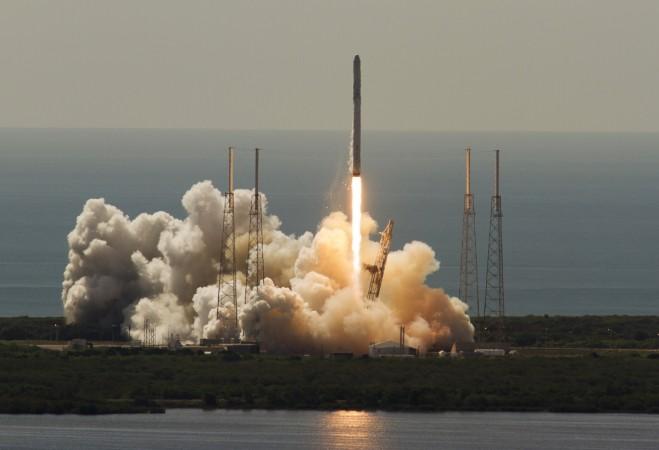
SpaceX has been cleared to launch a Falcon 9 rocket on Monday, after the Federal Aviation Administration stated that it had accepted the findings of a SpaceX investigation into the explosion of one of its rockets during a static fire test at the Cape Canaveral Air Force Station.
'The key is to make solar look good,' says Elon Musk while unveiling Tesla solar-powered roofs
The FAA has since issued SpaceX a return-to-flight certificate.
A Falcon 9 rocket will lift off from Vandenberg Air Force Base in California at 1:22 pm EST on Monday carrying 10 Iridium communication satellites.
SpaceX fuelled the rocket on Thursday and successfully carried out the same static test as it had when the explosion occurred in September 2016.
The launch should go ahead as scheduled weather permitting. As of now weather forecasts predict rain during the launch, which could see it postponed.
"With completion of the static fire test, our first launch has just gotten that much closer," said Iridium CEO Matt Desch, in a statement on Friday. "The Iridium team has been anxiously awaiting launch day, and we're now all the more excited to send those first 10 Iridium NEXT satellites into orbit."
Back in 2011, the founder of SpaceX, Elon Musk, stated that the Falcon 9 rocket would be capable of carrying heavier loads of cargo and more passengers to the moon or even Mars.
This rocket also possesses the second-highest escape velocity (the minimum speed required by a vehicle to escape the gravitational force of an object or planet) than any other space vehicle in history, after only the Saturn V moon rocket, which was decommissioned after the Apollo Program ended in 1972. The Saturn V was the foundation on which the first manned flight in 1968 was laid.
According to Musk, the FH will open the door to numerous other space missions, both commercial and governmental.
The Falcon Heavy rocket has a Low Earth Orbit (LEO) cargo load of about 54.4 tons and a full thrust load of 22.8 tons, thanks to its 27 Merlin engines, which makes it a truly super-heavy-lift spacecraft.

















